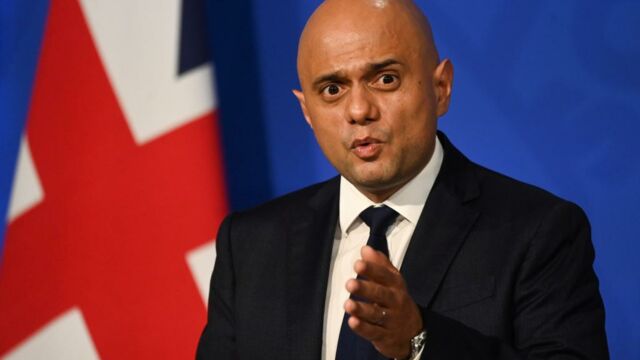Britain has been branded Europe’s coronavirus hotspot after recording 50,000 new cases this week. On Tuesday, the country also reported 223 new COVID-related deaths, the highest number logged since March.
Discover our latest podcast
The damning new figures have prompted calls for the reinstation of COVID restrictions in the UK, with health experts warning immunity against the virus may now be waning, and an increase in cases may occur over the winter.
However, despite the situation, Health Secretary Sajid Javid has resisted introducing ‘plan B’ COVID measures but warns they could be on the horizon if the people don’t go for their COVID vaccinations.
Remaining eligible five million urged to get their vaccines
Currently, the Government is relying on vaccines to carry Britain through the winter and wants to refrain from reinstating lockdowns and restrictions that have proved harmful to the wellbeing of people and businesses since the start of the pandemic.
During a news conference, Javid urged those five million who have not yet had their COVID shots to get vaccinated and further encouraged others to come forward for their booster shots when offered. If not, the Health Secretary warned that restrictions could make their way back.
If not enough people get their booster jabs, if not enough of those people that were eligible for the original offer ... don’t come forward, if people don’t wear masks when they really should ..., it’s going to hit us all, and it would of course make it more likely we’re going to have more restrictions.
Javid continued to explain that cases could rise to 100,000 per day if vaccination efforts fail to outpace the spread of COVID-19.
We need to sustain the progress that we’ve made, we could lose it, we could really lose that progress if people don’t take up their vaccination offers
What are the ‘plan B’ restrictions?
Thanks to the vaccine rollout, 45.4 million brits are fully vaccinated, prompting the Government to lift most COVID restrictions and even open the country up to international travel.
However, if cases continue to rise and those eligible refuse their jabs, ‘plan B’ could be implemented.
Last month Sajid Javid announced the measures for COVID plans ‘A’ and ‘B’, explaining that ‘plan B’ measures would only be brought in if ‘they are needed and supported by the data to prevent unsustainable pressure on the NHS.’
‘Plan B’ would involve a range of measures such as introducing vaccine passports for nightclubs and large-scale events, as well as work-from-home advice and the mandatory use of face masks in certain areas.
Now, Matthew Taylor, chief executive of the NHS Confederation, has called for the Government to implement some of these measures as ‘ It would require an incredible amount of luck for us not to find ourselves in the midst of a profound crisis over the next three months..’
We should do what's in Plan B in terms of masks [and] working from home, but also we should try to achieve the kind of national mobilisation that we achieved in the first and second waves, where the public went out of their way to support and help the health service.















